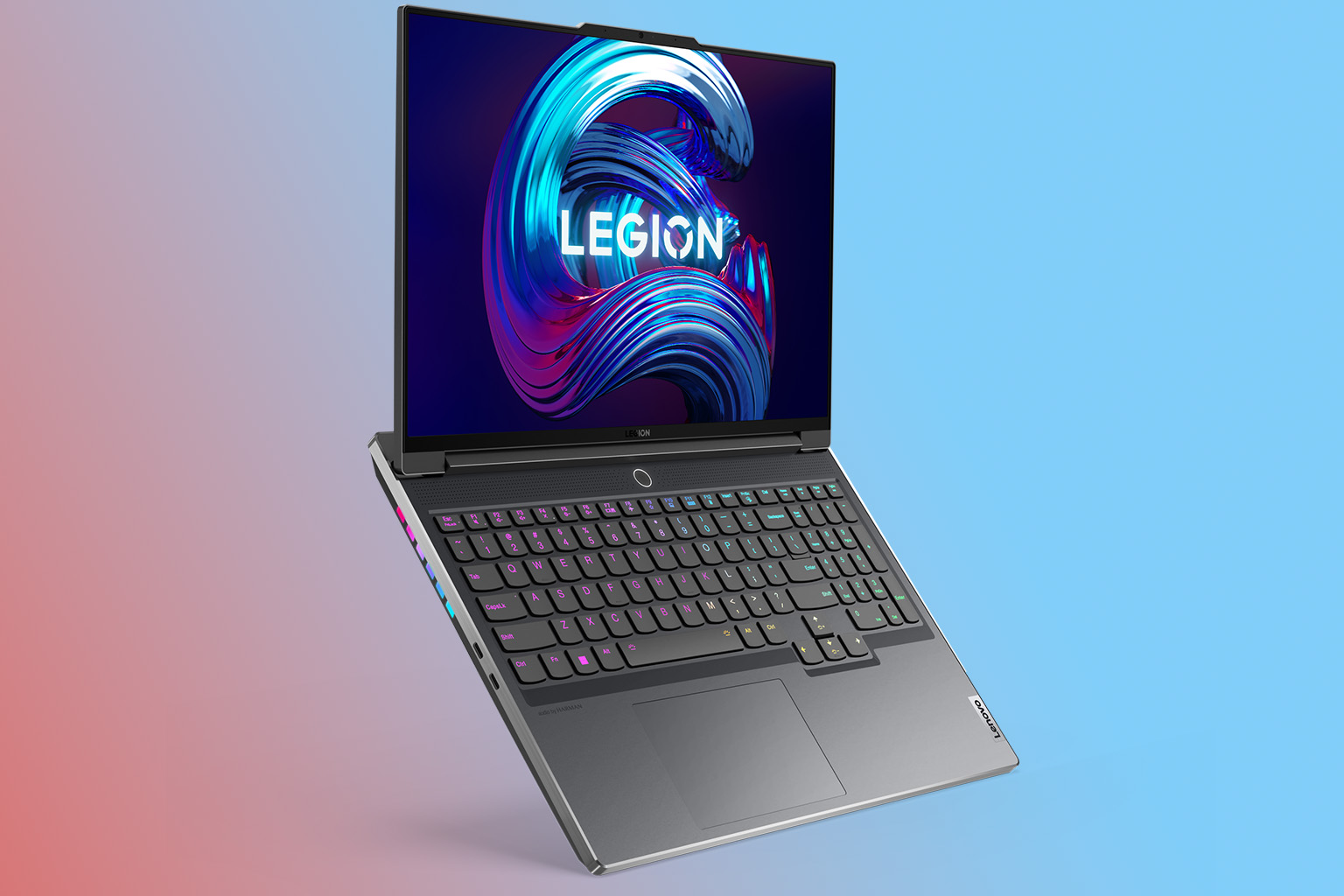
If your lap is on the bigger end of the scale, then keep reading this Lenovo Legion 7 review as a gaming laptop guide. Otherwise, this 16-inch monster might actually be competing to be your desktop replacement.
With a charging adapter the size of a small dog and that whopping screen, this 2.6kg unit isn’t one to lug around in your work bag. With the top-end model reviewed here costing around £3K, it certainly costs enough to be your primary PC and fight with its best gaming laptop competitors.
It may have a slightly boring shell, resembling a businessman’s laptop from the early 2000s, but just like the lights that come on when you power it up – there’s more than meets the eye here.
Lenovo Legion 7: Price & Availability
I'm sorry but that wasn't a typo, this machine really costs £3000/€3000 (in its 161AX7 config). Stateside and Aussie readers I'm afraid you are out of luck for the moment as the Legion 7 in this configuration is only available in the UK and Europe.
Alternative specs for this machine can bring the price down quite dramatically though. The Intel Core i7 and i5 variants are available for around £1000/€1000. They will, however, have to compromise on performance with a smaller SSD, only 16GB of RAM (compared to 32GB as reviewed) and a useful but not-as-impressive Nvidia GeForce GTX 1660 Ti (instead of this review model's RTX 3080 Ti).
Lenovo Legion 7 review: Design
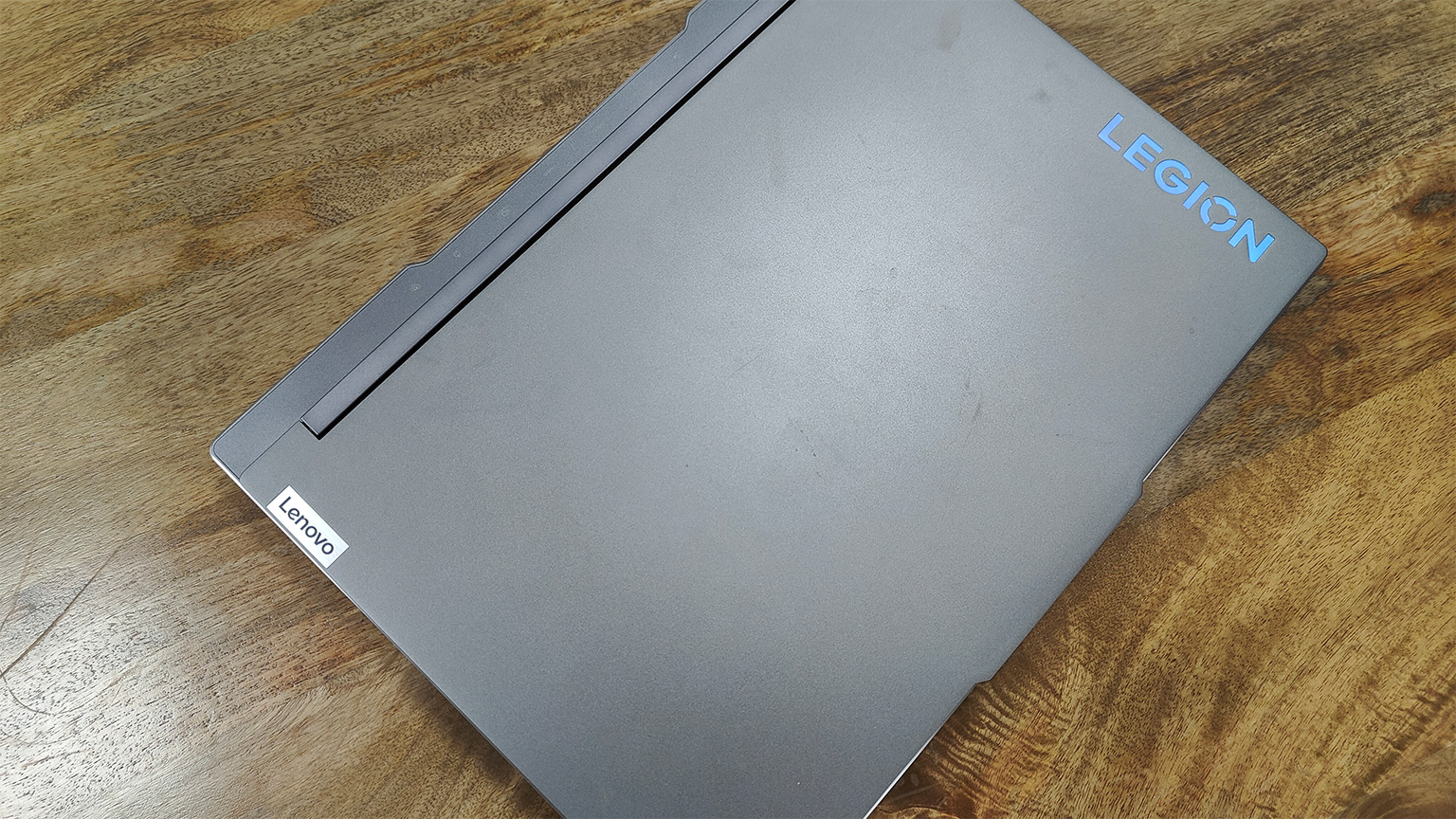
As I said, this machine isn’t going to win any design awards in my opinion, but in a way that’s a positive. It’s almost a relief to see a gaming laptop that doesn’t scream “I’m a gamer!”.
Having said that, Lenovo has allowed itself one dalliance with customisable rainbow-coloured RGB lights around each key and the body of the laptop (they can easily be toggled on and off though).
While featuring a fairly prominent hinge, the whole laptop does have a premium feel – with an aluminium casing and a brushed metal frame around the base both being particularly nice touches.
The base is much thicker than the display, however, so when folded the Legion 7 is actually a real looker. An indented rear and overhanging fold between the base and the screen make it feel like you're carrying a (very heavy) notebook around. Like an advisor to a high-ranking politician.
Lenovo Legion 7 review: Display
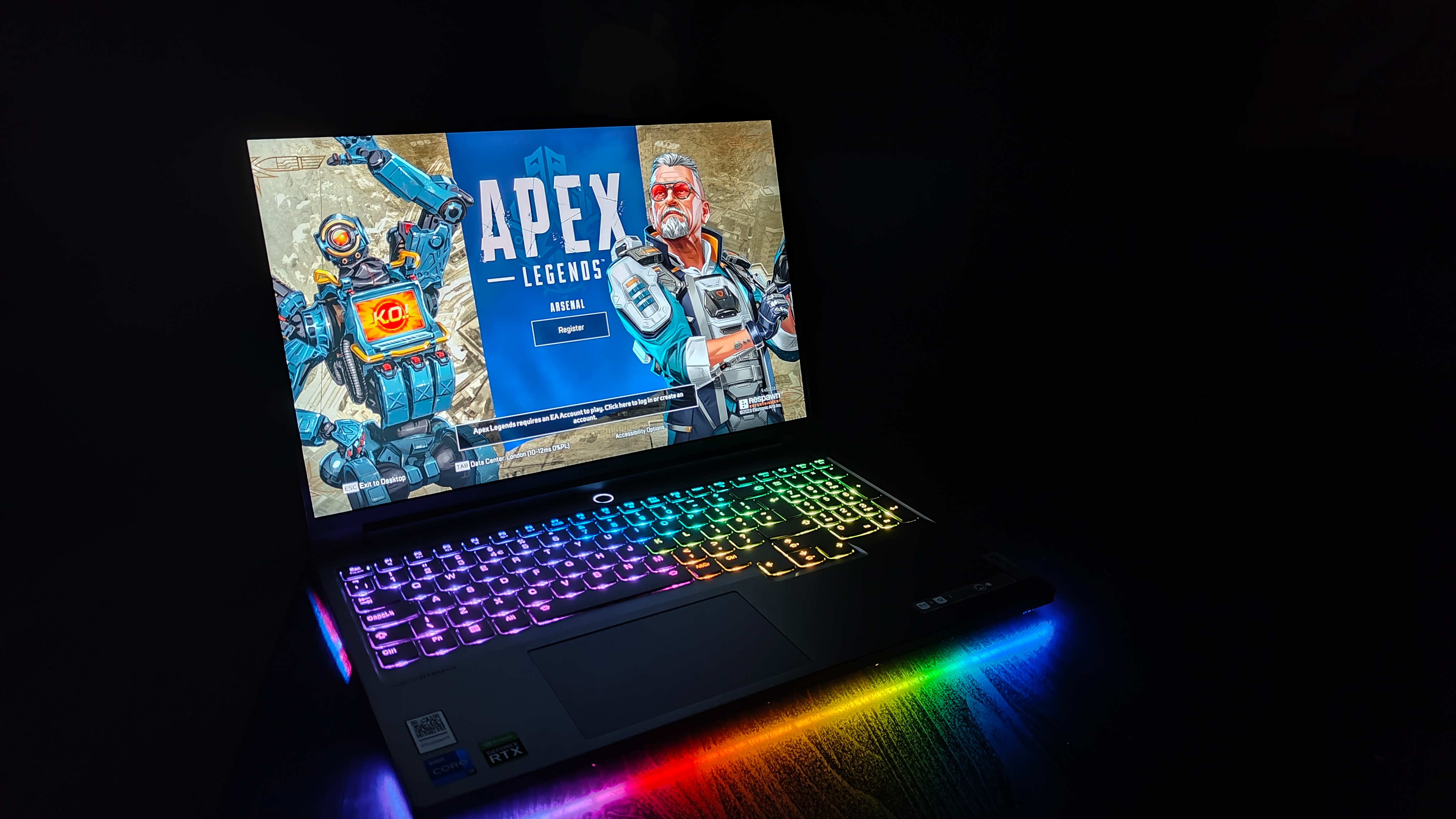
The 16-inch screen on the Legion 7 is a certainly a thing of beauty, but doesn’t quite live up to the hype in my opinion.
The 165Hz refresh rate is an excellent offering, but we’ve seen the likes of the Razer Blade 15 go up to 360Hz. This isn’t necessarily something you would notice too often, but at the price point, I was expecting a ‘yes and’ approach to specs.
The 2560 x 1600 resolution is crisp, but gaming was a lot more stable, with fewer frame skips, at 1920 x 1080 – which is a shame as the power is definitely there to make more of the hardware.
Lenovo Legion 7 review: Performance
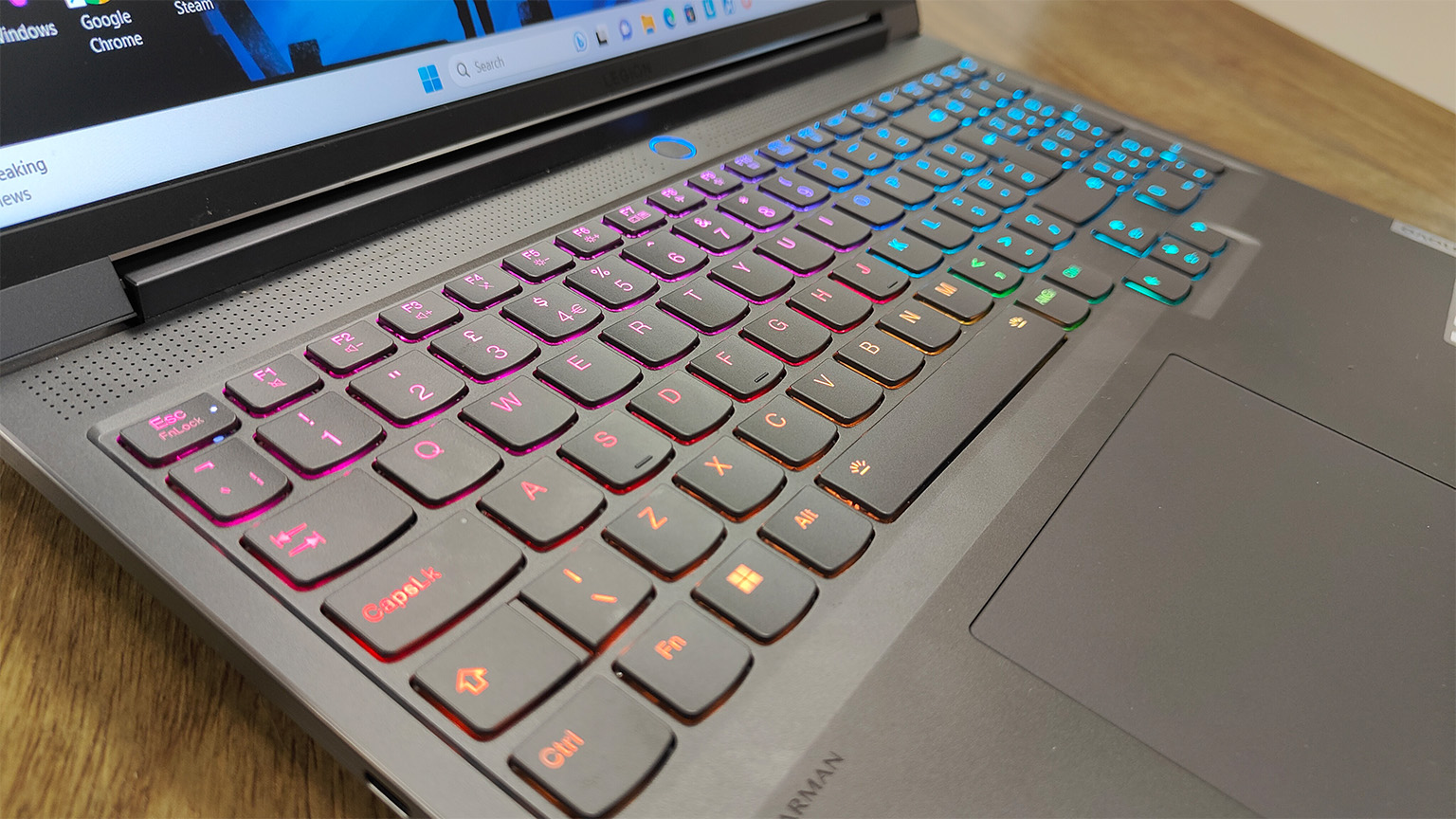
It almost feels like I need to review two separate devices here. When plugged in and charging, the Legion 7 shows its true potential with access to its performance mode. Here you can throw pretty much anything at it and the laptop will crunch through it without issue (albeit noisily, as the fans go into overdrive in this mode).
The GeForce RTX 3080 Ti, DDR5 32GB RAM and Intel Core i9 processor makes for a really impressive outlay when they get to flex their mighty muscles. While it can get slightly warm to the touch I’ve never felt concerned by the temperature or had an issue with overheating even in extensive sessions.
Plugged in, I can run Ghostwire: Tokyo with the settings cranked up and ray-tracing enabled, achieving a consistent 60fps; Doom Eternal on its highest requirements with ray-tracing reaches a whopping 160fps consistently.
Compare that to the unplugged machine and you’ll realise this is not a laptop to play games on the go. Ghostwire struggled to reach 30fps in the game’s quieter moments, while Doom dropped all the way (but admittedly never below) 30fps as well. If you really are determined to play untethered, you’ll need to make some serious compromises on performance. But that's just the way of how these power-hungry chipsets function.
On our Geekbench benchmarking test (which we performed plugged in) the Legion 7 posted serious numbers: with a single-core score of 2427, multi-core score of 14,476 and GPU score of 131,737. That's more than enough for serious gamers to indulge.
Lenovo Legion 7 review: Features
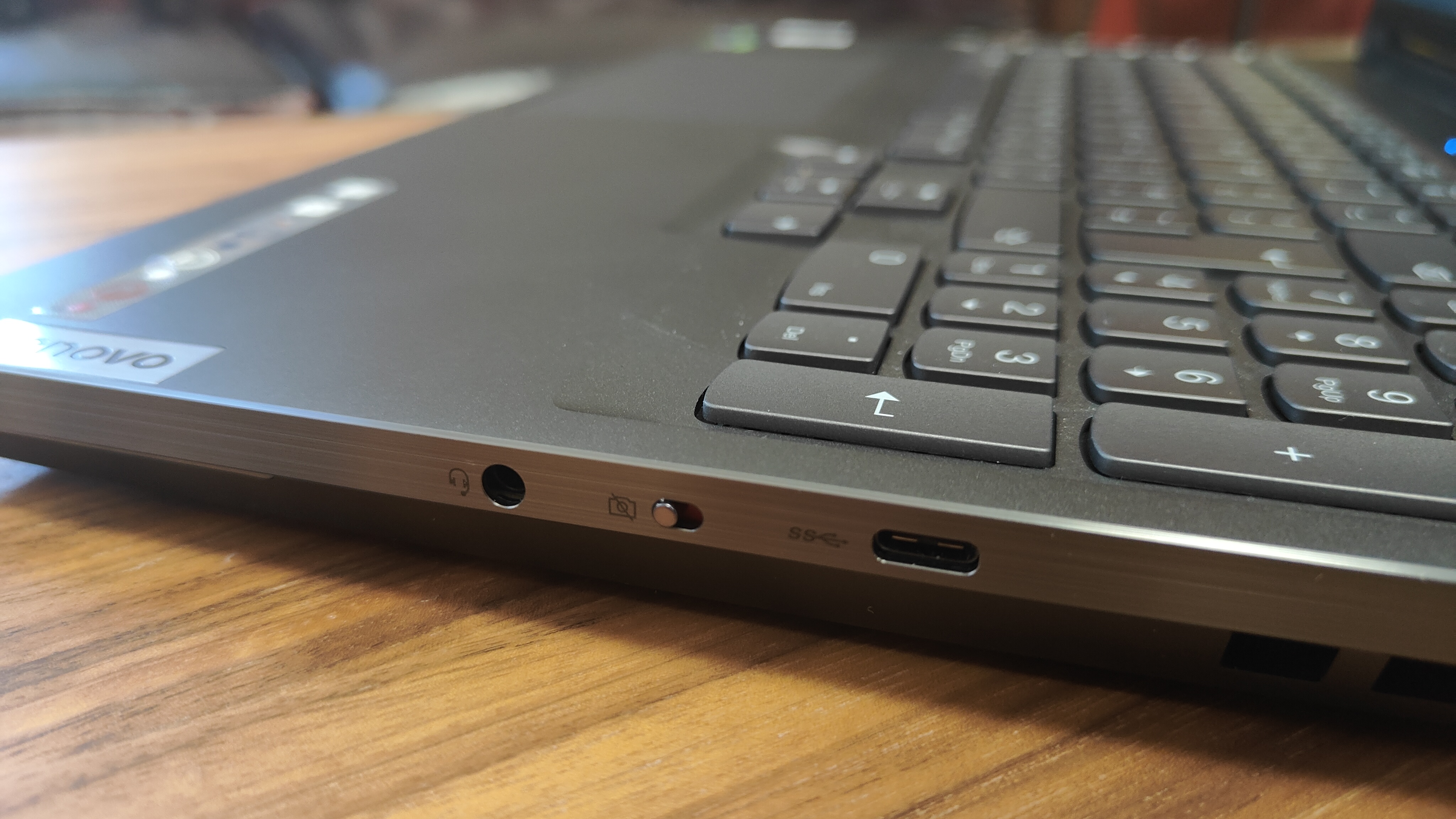
Aside from gaming, the Lenovo Legion 7’s specs make it a fearsome work tool. While the 1080p webcam is solid if unspectacular, I really appreciate the webcam shutter on the side of the laptop’s base.
The high resolution makes the Legion 7 a great choice for streaming, so long as you can keep it plugged in (more on that later). Audio is pretty good too with two Harman stereo speakers below the hinge.
A plethora of ports – mostly on the rear – is generous and includes two USB 4 Thunderbolt connections capable of up to 40 Gigabits per second. I've included a table of specs below to show-off what else is available.
Lenovo Legion 7 review: Battery life
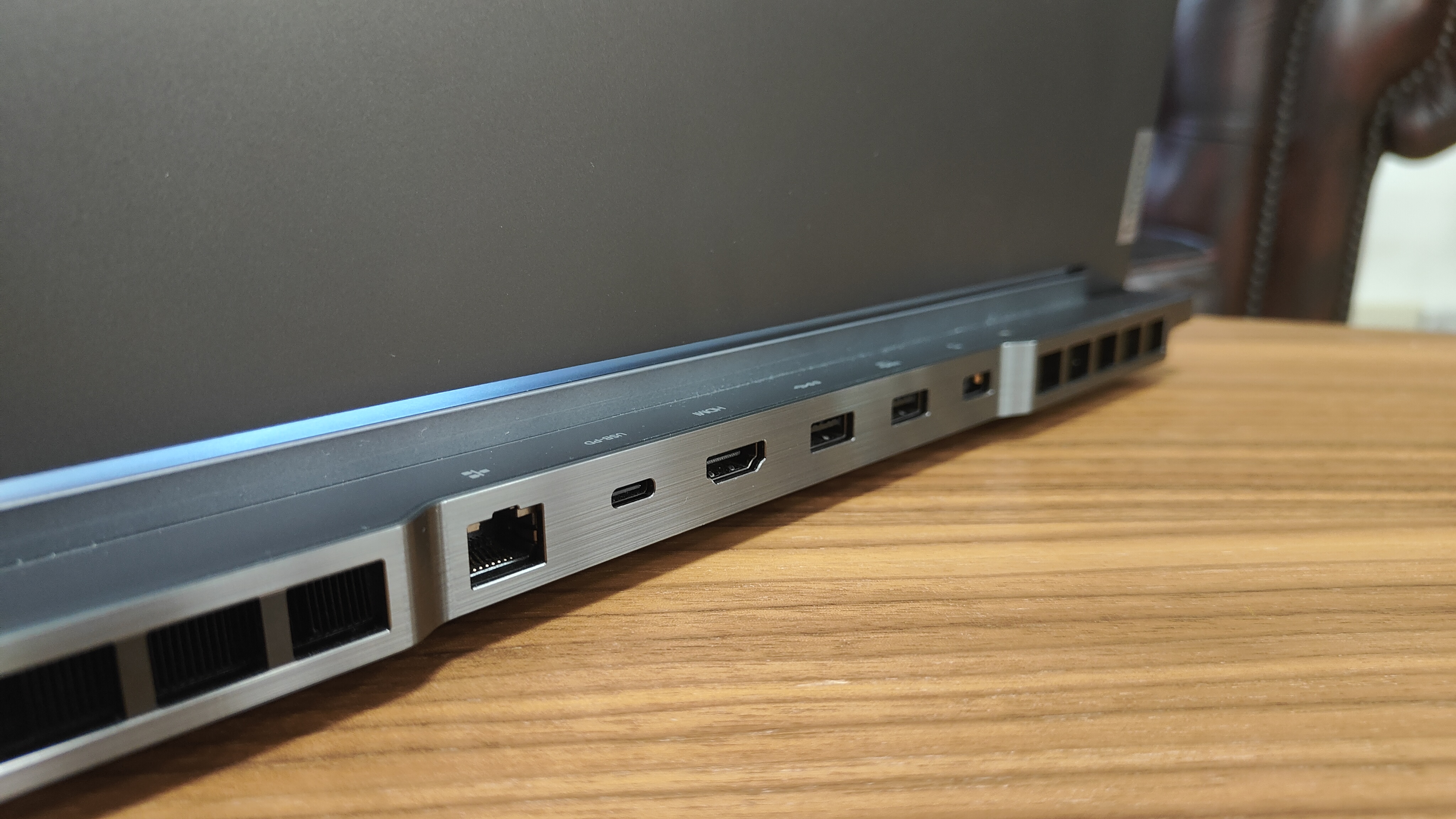
This is probably my biggest disappointment with this machine. With a monster 99.99Wh battery (the largest you're allowed in a laptop, otherwise you couldn't take it on a plane), you’d expect some solid stamina. However, even in casual use, don’t expect more than around 4 hours of charge.
If you’re playing a serious game then you’ll be lucky to break the hour mark. I found myself chained to the 300W charger, which mercifully does at least deliver its energy quickly (you can fill up the battery in just over an hour, which is pretty great).
Overall, however, for a powerful gaming laptop this is no surprise at all. We've seen other devices last for even less time in a casual setup, and let's face it: if you're buying this for gaming then you're going to want to plug it in for full power from the CPU and GPU configuration anyway.
Lenovo Legion 7 review: Verdict
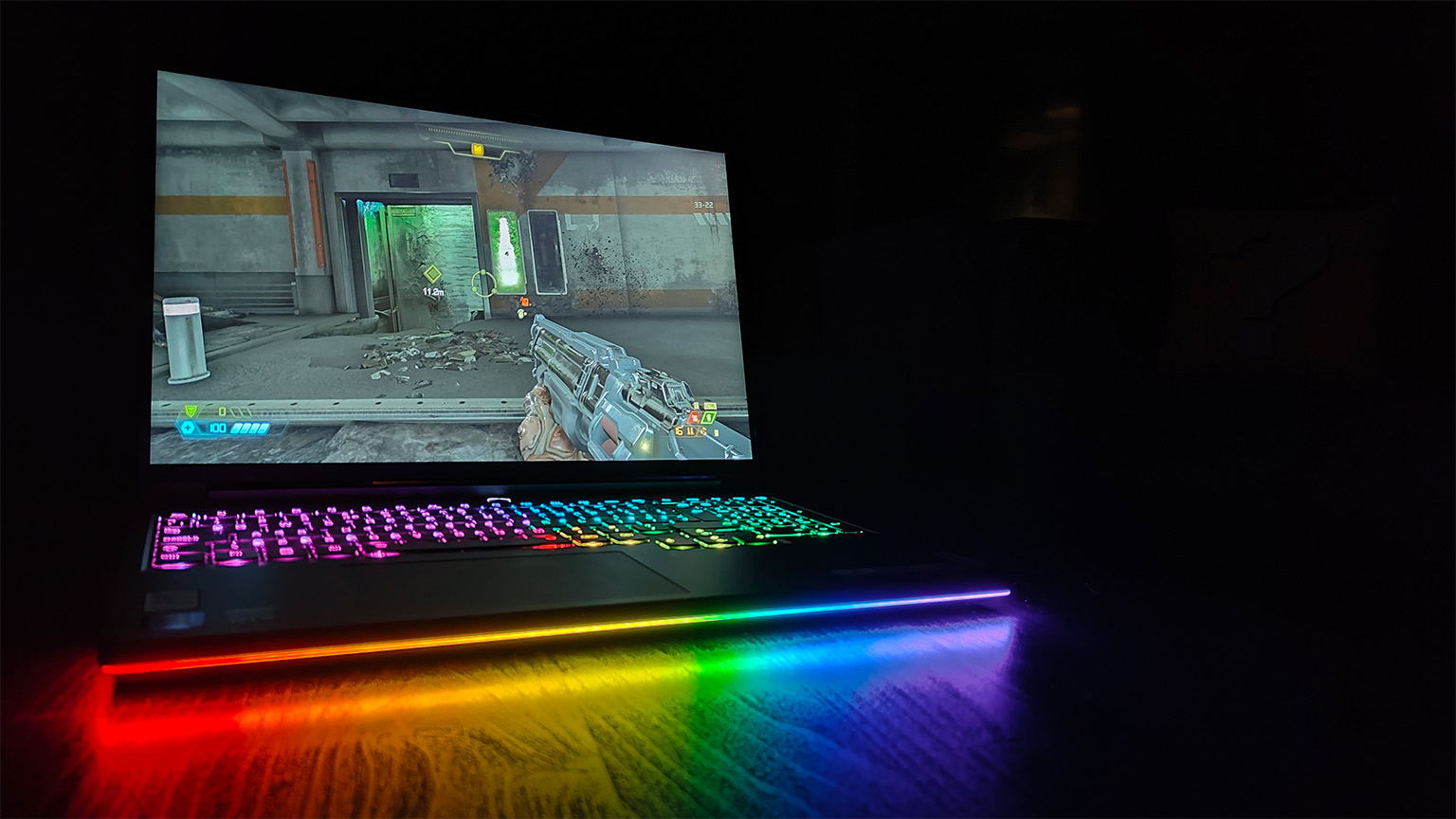
If you’re looking for something to play games while on the go then this isn’t the laptop for you. Yes, the Lenovo Legion 7 is big and heavy, but that's par for the course with a 16-inch gaming laptop that's this powerful.
Plug it into the mains, however, and the performance is simply formidable – and you can blast through the most demanding games with ease. If you’re happy to remain static, then pretty much any game is your oyster, all of which will look great on that 16-inch display.
While there are some not-inconsiderable issues with the Legion 7, particularly how reliant you are on the charger, its sheer power will blow away lesser gaming machines. So if you can afford one this high-end, it's easy to recommend as a gaming great.
Also consider
If £3000 is a bit out of your price range then, well, that's understandable. If you have your heart set on a similar machine, the Legion 7 range starts at around £999 – but obviously you won't get such good specs.
There are also some excellent gaming laptops for a lower price that we rate very highly. The Asus ROG Zephyrus G14 blew us away with its value for money and it benchmarked very well indeed.
Those not put off by the price tag might want to take a look at the Razer Blade 15 Advanced or even the larger Razer Blade 17 – which is also a performance powerhouse and a design deity.







